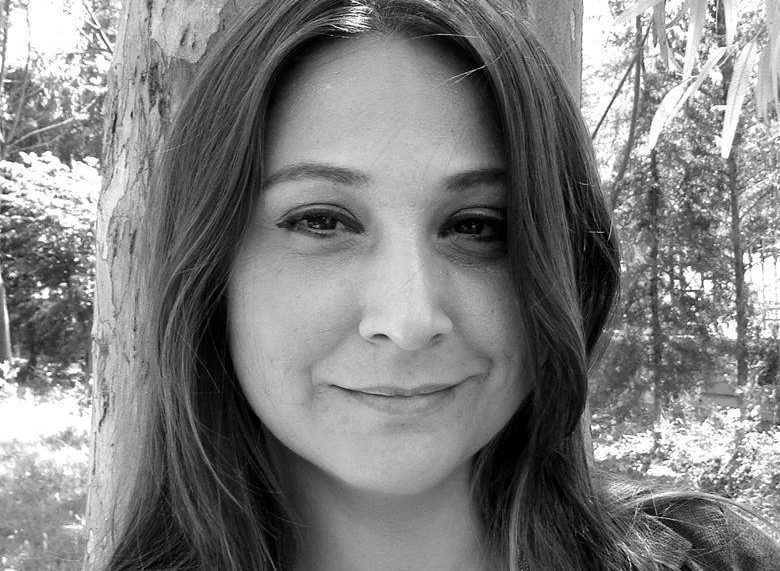Memories & self-reconstruction
Libyan poetry in exile
Love, grief, life and death – all of them suddenly takes on a whole new meaning when the place you call home is drawn into conflict and violence. In Libyan poet Nora M. Barghati’s world, the darkness gives away to becoming an act of cultural revival.

Just like many others who have left their homes in unsafe parts of the Middle East, I listen as tragic stories of kidnapping, murder or corruption in Libya, my country of origin, arrive from disheartened family and friends. Tragic stories, which if thought about for too long would drive me into a state of severe depression over my own powerlessness. I also watch on as a generation of youth turn their backs in despair, desperately disassociating themselves with the region and rushing instead to emigrate or escape, if they can, to places elsewhere.
Through the poems, her voice speaks about what social and visceral ramifications the war is having on herself.
When surrounded by tragic stories of war, injustice and poverty, people naturally react in different ways. Some ask questions, some stay silent; others choose to blame the chaos on cultural, social or educational flaws within the specific countries and people residing in them. But there are also those, like Libyan poet Nora M. Barghati, who choose instead to pick up their pens and turn the pain of war into an act of cultural revival.
Barghati, who comes from the eastern city of Benghazi, is currently living in Iraq with her Iraqi husband and children. Despite residing outside her homeland, Barghati has not forgotten about it; she writes beautiful poems on family, love, war, death, nature, grief and the concept of home. During an online interview, I asked her about her poetry and whether she believes that literature has the potential to change how Libyans see their country and its future. Change is a big word, she said, but “to touch, yes definitely, and to influence, of course, [as] it gives a voice [to the people]. Literature and art, in all their forms, are more a representation of society and culture than a tool with which they are manipulated.” Still, she concluded, that does not mean that literature cannot be used in that manner.
Barghati’s 2014 poem “War Has Been Here”, about the ongoing conflict in Libya, describes its destructive impact on people. She uses powerful imagery through a language that portrays the remnants of terror on the bodies of its victims.
the three black holes
gaping
on a woman’s face
in place
of her eyes and mouth
when terror takes hold
tell it all.
The image in the poem of a corpse of a brutally killed anonymous Libyan woman – a mother, a sister, a daughter – symbolises the violence which has been gripping the heart of the nation for over five years. The terror of the war, depicted in the mutilated woman’s face, has replaced her once normal features, from the era predating the war.
Two years later, in 2016, Barghati wrote “Home and a Storm Named Change”, where she reminisces about her homeland. Unlike “War has been here”, this poem has a different tone when speaking about grief caused by war. Barghati elegantly takes the darkness and turns it into a source of strength, thereby bringing her closer to beautiful memories of home.
I toss
between fear and grief
and the distance offers no relief.
Yet with God’s help;
His sweet mercy and grace
the memory of what once was
I tightly embrace
and my heart remains
rooted
in the red dirt of home.
Although far away
I wander
although far away
I roam
my heart is never far from home.
The use of emotive language and words like ‘embrace’, ‘heart’ and ‘grace’ reflect her yearning for returning home, captured through a recalling of warm memories. For an estranged reader, the poem inculcates a belief that home is never far away, and remains rooted in the hearts and memories of its people.
Her poetry becomes a way of providing alternative spaces, of socio-political commitment and cultural innovation.
Barghati says that her desire to write poetry is driven by passion, and provides her with “release, satisfaction, a sense of achievement and self-expression.” It is through the poems that her voice speaks about what social and visceral ramifications the war is having on herself. Her poetry therefore becomes a way of providing alternative spaces, of socio-political commitment and cultural innovation. In speaking about the grief of war, her poems provide ways for readers to viscerally self-reconstruct.
But her work has meaning far beyond the borders of Libya, or even the larger region. It inspires people affected by conflict to find consolation in carefully-chosen words, rhyming couplets or the use of caesura, which can depict the terrors of war more powerfully than the mundane media reports that keep hitting our screens. Indeed, literature enables us to take control of our thoughts, express ourselves in a violent world to avoid sinking into the passive multitude.






